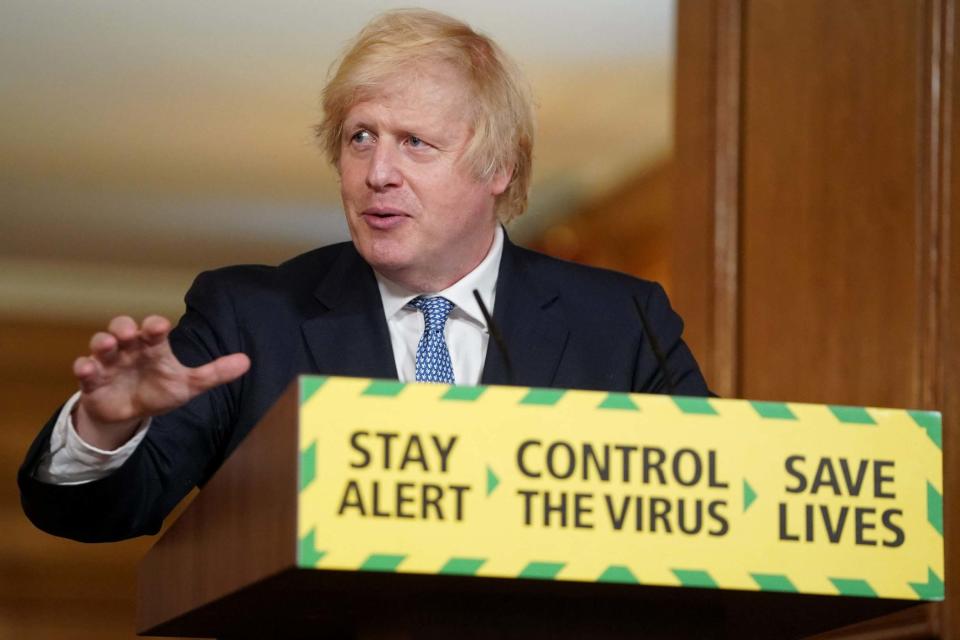Criticism over Tony Sewell heading government race commission after ‘flimsy’ institutional racism comment

The Government is facing criticism after appointing charity boss Tony Sewell to lead the new racial disparity commission despite his previous claim that evidence of institutional racism was "flimsy".
Mr Sewell was confirmed by the Government as chairman of the new Commission on Race and Ethnic Disparities on Thursday.
The international education consultant previously worked with Prime Minister Boris Johnson in 2013, when he led the then mayor’s education inquiry into the capital’s schools, which resulted in the creation of the London Schools Excellence Fund.
But Downing Street has already been forced to defend the decision in light of comments Mr Sewell made in Prospect magazine in 2010, where he wrote: “Much of the supposed evidence of institutional racism is flimsy.”
In an interview with the Times newspaper last year, the former teacher also suggested that the root cause of knife crime and gang culture among black youths was absent fathers, citing figures showing that about 50 per cent of black children grow up without a father.

“People often say I’m ‘brave’ to say that. It’s so patronising,” he told the paper.
Wanda Wyporska, who heads the Equality Trust charity, criticised the decision as "disappointing", saying Mr Sewell’s views were seen as somewhat niche.
She said: “If the establishment wants to get a black person to head something up and align with their thoughts, we know who those people are – Trevor Phillips or Tony Sewell. And the rest of us just think, ‘Oh no, not again. Another wasted opportunity for change.’
“It’s disappointing. Not just as a black person but as executive director of the Equality Trust, I know that the structural inequalities are undeniable."
Suresh Grover, a veteran campaigner who runs the Monitoring Group, which helps victims of racial violence, also told the newspaper: “The appointment of Tony Sewell as the chair of the government’s new commission on race disparity confirms a widely held view within the UK’s BAME communities that its establishment is simply paying lip service to [the] deeply entrenched systemic problem of racism that exists within state institutions.
"It can now be regarded as a deeply hurtful and cynical exercise that has buried all hope for any meaningful and positive change for race relations in the UK.”
But defending the decision to appoint Mr Sewell, the Prime Minister’s official spokesman said: “In terms of Dr Sewell CBE, he has supported many young people from diverse backgrounds into stem (science, technology, engineering and mathematics) careers.
“The PM knows very well his work and how it has improved access to education across London.
“The PM is confident that he shares his commitment to maximising opportunity for all.”
Mr Johnson announced the establishment of the commission after a series of anti-racism protests on British streets triggered by the death in the US of George Floyd while in police custody.
The 10-person group, comprised of representatives from the fields of science, education, broadcasting, economics, medicine, policing and community organising, will look to deliver a report on race disparity within the health, education, criminal justice and employment sectors by the end of this year.
The Prime Minister said: “This cross-government commission will examine inequality in the UK, across the whole population.
“The commission will be inclusive, undertaking research and inviting submissions where necessary. It will set a positive agenda for change.”
The early stages of setting up the commission drew controversy after Mr Johnson gave Munira Mirza, head of the Number 10 policy unit, a major role in its creation.
Ms Mirza had previously questioned the existence of institutional racism and hit out at a “culture of grievance” among anti-racism campaigners.
Mr Sewell, currently head of education charity Generating Genius, said: “I have spent my entire career in education striving to help all students achieve their full potential.
“I know however that inequality exists, and I am committed to working with my fellow commissioners to understand why.
“Together we will set out recommendations for action across Government, public bodies and the private sector, and will seek to inform a national conversation about race, led by the evidence.”
The other commissioners include space scientist and broadcaster Dr Maggie Aderin-Pocock, chairman of the Youth Justice Board for England and Wales Keith Fraser, ex-BBC journalist Dr Samir Shah, professor of surgery at University College London Lord Ajay Kakkar, economist Dr Dambisa Moyo, academies trust chief executive Martyn Oliver, co-founder of UKGovChat Naureen Khalid, Muslims for Britain co-founder Aftab Chughtai, and commentator Mercy Muroki.
Two representatives from the Windrush Working Group – director of Voice4Change Kunle Olulode and Blondel Cluff, chief executive of the West India committee – will attend meetings where relevant, No. 10 confirmed.
Read more
Civil servant in charge of Priti Patel bullying inquiry 'to be moved'
Mother of German gunman 'Rambo' urges police to call off forest search
'Shark sighting' in River Thames near London Eye confirmed as a hoax
20,000 people stopped for not wearing face masks on Tubes or buses

